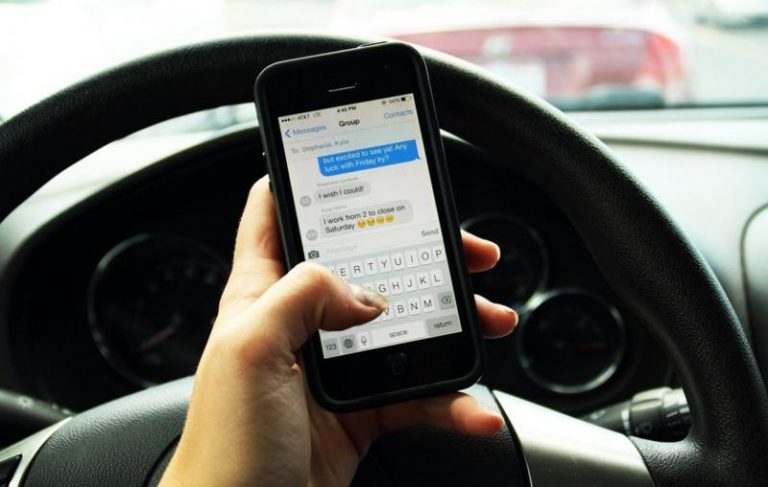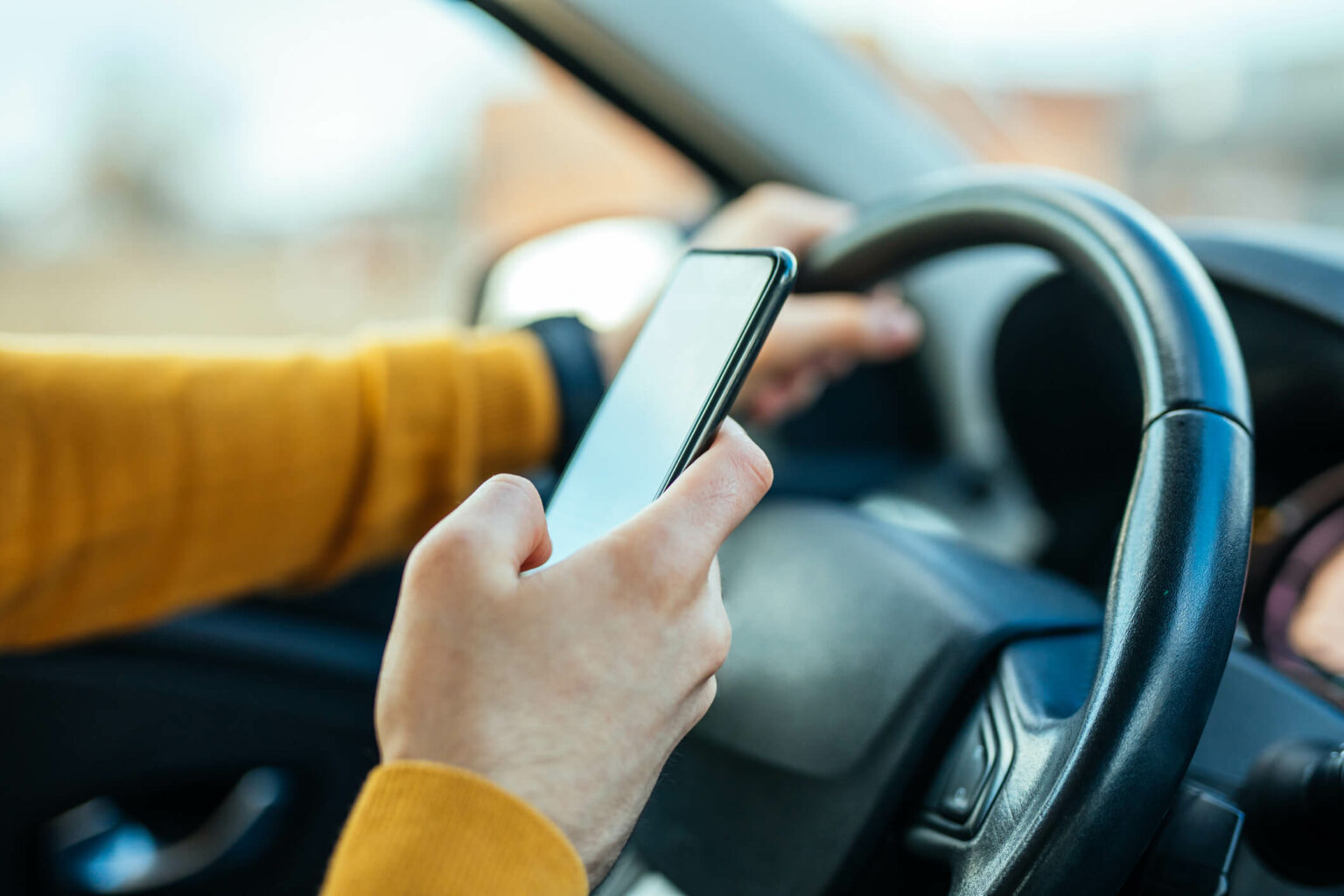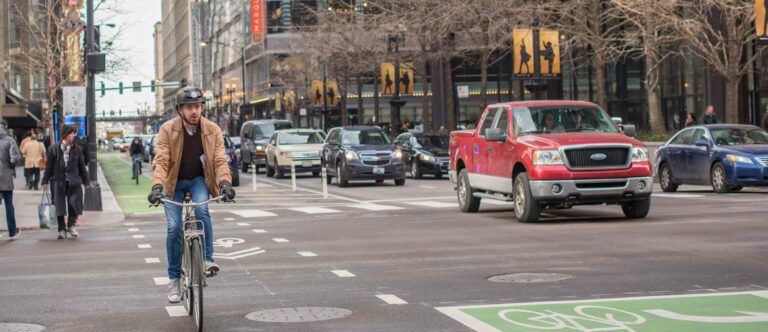The person who hit you while texting wasn’t just “distracted.” They made a choice—a choice to prioritize their phone over your safety. And now, you’re left picking up the pieces: the doctor’s appointments, the car repairs, the sleepless nights wondering how this could’ve happened.
But here’s the thing: you’re not powerless. The law exists to hold people accountable for their actions, and with the right approach, you can turn their reckless decision into a path toward justice and recovery.
If an accident injured you or someone you care about because someone couldn’t put their phone down, call Walner Law at (312) 410-8496. Let’s make this right.
The Epidemic of Texting While Driving

Texting while driving isn’t about stupidity. It’s about addiction. The human brain wasn’t built to resist the instant gratification of a notification. That ding triggers a dopamine release, the same chemical rush that makes gambling so irresistible. Your brain tells you, Check it. Just for a second. It won’t hurt.
Except it does.
That split-second decision means taking your eyes off the road, your hands off the wheel, and your brain off driving. And no matter how good a driver you think you are, that’s a deadly combination.
How Bad Is It, Really? (The Grim Statistics)
Government agencies and safety organizations keep dumping out new stats, and they all say the same thing: texting while driving is wrecking lives.
- In one recent year, 3,308 people died in crashes involving distracted driving.
- At 55 mph, reading a text means driving the length of a football field blind.
- Texting delays reaction time more than drunk driving. One study found that a texting driver’s response time is 37% slower, compared to 12% for someone at the legal alcohol limit.
- The most common excuse: “I only looked away for a second.”
The Double Standard
Ask any driver if texting behind the wheel is reckless, and they’ll say yes. Then watch them do it anyway.
- A study found that while 94% of drivers agree texting while driving is dangerous, 35% admit they do it regularly.
- That same study found most drivers believe they are capable of handling a quick text, but other drivers are the real problem.
- “Hands-free” laws haven’t stopped the behavior—they’ve just forced people to hide their phones lower, making it even worse.
What to Do Right After the Accident
The crash is over. The adrenaline has faded. Maybe your car is sitting in a repair shop, maybe you’re nursing a sore neck, or maybe you’re stuck on hold with an insurance company that suddenly has a lot of questions. Now that you’re home, the reality of what happened is setting in: a texting driver hit you, and now you’re the one dealing with the fallout.
This is the time to take action. What you do next determines whether you get fairly compensated or get stuck fighting insurance adjusters and medical bills alone.
Get a Copy of the Police Report
If an officer responded to the accident, they filed a report. That document is a key piece of evidence—it contains the official version of events, including details about road conditions, witness statements, and whether the other driver was cited for distracted driving.
- Where to get it: In Illinois, you can request a crash report from the local police department, county sheriff’s office, or Illinois State Police (if they handled the accident). Some departments allow online requests, while others require an in-person visit.
- What to check for: Make sure the report includes all relevant details—especially if the officer noted signs of distracted driving. If the report mentions phone use, that strengthens your case. If it doesn’t, that doesn’t mean the other driver wasn’t texting—just that it wasn’t confirmed at the scene.
Gather Your Own Evidence
Even if you took photos and notes at the scene, now is the time to organize everything. If you didn’t get pictures, check for other sources:
- Surveillance footage: Nearby businesses or traffic cameras may have recorded the crash. Some security systems automatically delete footage after a few days, so contact them immediately.
- Dashcam video: If you or a witness had a dashcam, that footage could prove the other driver wasn’t paying attention.
- Witness statements: If anyone saw the accident, reach out and ask if they’re willing to provide a statement. Their testimony could confirm the other driver was looking at their phone instead of the road.
Request the Other Driver’s Phone Records
Proving someone was texting at the exact moment of impact requires hard evidence. Cell phone records can show whether they were sending messages, browsing social media, or on a call when the crash happened. But phone companies won’t just hand over that information—you’ll need legal help to get it.
- How to get them: A lawyer can subpoena the records, forcing the phone company to release timestamps of texts and app activity.
- Why this matters: If the records show the other driver was using their phone seconds before the crash, that’s undeniable proof of distracted driving. This makes it easier to hold them accountable in an insurance claim or lawsuit.
See a Doctor (Even If You Feel Fine)
Maybe you walked away from the accident thinking, That wasn’t too bad. Maybe you only feel a little sore. But injuries from car crashes don’t always show up right away—whiplash, concussions, and soft tissue damage can take days to appear.
If you haven’t already, schedule a medical exam as soon as possible. Waiting too long gives insurance companies room to argue that your injuries weren’t caused by the accident. A doctor’s report creates a direct link between the crash and your condition, making it harder for them to deny your claim.
Deal with Insurance the Right Way
By now, the other driver’s insurance company has likely reached out. Be careful—whatever you say will be used to minimize their payout.
- Stick to the facts. Don’t speculate, apologize, or downplay your injuries.
- Don’t accept the first offer. Insurance companies start low, hoping you’ll take a quick payout. Once you accept, you can’t go back for more if medical issues arise later.
The Legal Side of Things
Illinois has strict laws against using a phone while driving, and for good reason. 625 ILCS 5/12-610.2 makes it illegal to operate a vehicle while holding an electronic device. That includes:
- Texting or reading messages
- Browsing the internet
- Watching or recording videos
- Holding the phone for a call (unless using a hands-free system)
Breaking this law comes with fines:
- First offense: $75
- Second offense: $100
- Third offense: $125
- Fourth and subsequent offenses: $150
At first glance, those fines don’t seem like much—less than a single speeding ticket. But a texting-related crash carries far bigger consequences. If a driver causes “great bodily harm, permanent disability, or disfigurement” while using a phone behind the wheel, the violation becomes a Class A misdemeanor, punishable by up to one year in jail and a $2,500 fine. If the crash results in a fatality, the charge increases to a Class 4 felony, carrying 1 to 3 years in prison.
Even without injuries, three moving violations in a year lead to a suspended license under 625 ILCS 5/6-206(a). Texting while driving counts as one.
Who Pays for the Damages?
Liability in a texting-while-driving accident typically falls on the distracted driver, but getting compensation depends on proving their negligence. If successful, their insurance should cover:
- Medical expenses – Emergency treatment, ongoing care, physical therapy, and any future medical costs related to the accident.
- Lost wages – Compensation for time missed from work due to injuries. If the injuries affect long-term earning capacity, future lost income may also be included.
- Pain and suffering – Physical pain, emotional distress, and reduced quality of life resulting from the accident.
- Vehicle repairs or replacement – The cost to fix or replace a damaged car.
If the at-fault driver is uninsured or underinsured, other options may include:
- Uninsured/underinsured motorist (UM/UIM) coverage – If included in your policy, this covers your losses when the at-fault driver lacks enough insurance. Illinois requires insurers to offer this coverage, but drivers must opt in.
- Personal injury lawsuit – If insurance doesn’t fully cover your losses, suing the driver directly may be an option. However, collecting compensation depends on whether they have assets to pay a judgment.
Can You Sue a Distracted Driver?
Yes. Illinois law allows injury victims to file a personal injury lawsuit against a driver whose negligence caused harm. The legal standard is straightforward:
- The driver had a duty of care to drive safely.
- They breached that duty by texting while driving.
- That breach caused the accident and resulted in damages.
Beyond compensation for losses, lawsuits can pursue punitive damages in cases of gross negligence. These aren’t meant to reimburse losses but to punish particularly reckless behavior. While punitive damages aren’t automatic, courts may award them if the driver’s actions showed a blatant disregard for safety.
Dealing with Insurance the Right Way

Insurance companies don’t stay profitable by handing out fair settlements. They make money by paying as little as possible, and they have an entire playbook designed to minimize, delay, or deny claims. If a texting driver hit you, expect their insurer to do everything possible to shift blame, downplay your injuries, or pressure you into a lowball settlement. This isn’t personal—it’s just business to them.
The Insurance Company’s Playbook
From the moment you file a claim, the other driver’s insurer starts looking for ways to reduce what they owe. Common tactics include:
- Blame-shifting – They’ll suggest you were distracted too, driving too fast, or failing to react in time. If they can pin even a small percentage of fault on you, they lower their payout. In Illinois, under 735 ILCS 5/2-1116, if you’re more than 50% at fault, you get nothing.
- Downplaying injuries – “Soft tissue injuries heal quickly,” they’ll say. “Are you sure that pain wasn’t from something else?” If your injuries aren’t catastrophic, expect them to argue they don’t warrant a high settlement.
- Delaying tactics – They’ll drag things out, hoping you’ll get desperate and accept less just to move on.
- Lowball offers – The first settlement offer is rarely enough to cover medical bills, lost wages, and other damages. They count on people accepting it before realizing how much they’re actually owed.
How a Lawyer Levels the Playing Field
A lawyer doesn’t just send demand letters and make phone calls. They force insurance companies to take your claim seriously. Here’s how legal representation changes the game:
- Protects you from bad-faith tactics – Insurers can’t use delay or deception when they know a lawyer is watching. If they act in bad faith, Illinois law allows legal action against them under 215 ILCS 5/154.6.
- Gathers evidence to prove fault – A lawyer can subpoena phone records, obtain traffic camera footage, and bring in accident reconstruction experts to prove the driver was texting.
- Calculates the full value of your claim – Medical costs, lost income, pain and suffering—lawyers ensure everything gets accounted for so you don’t settle for less than you deserve.
- Negotiates aggressively – Insurance companies have teams of lawyers. So should you. They’re far less likely to play games when they know a lawsuit is ready to be filed if they refuse to pay fairly.
The difference between handling a claim alone and having legal representation is often the difference between a settlement that barely covers expenses and one that provides real financial recovery. Insurance companies respect leverage. A lawyer gives you that.
Don’t Let a Text Message Ruin Your Life
Walner Law doesn’t play games with insurance companies. We fight for the settlements our clients actually deserve, not whatever the other driver’s insurer thinks is convenient.
Call (312) 410-8496 today, and let’s make sure their mistake doesn’t cost you more than it already has.


 Skip to content
Skip to content








